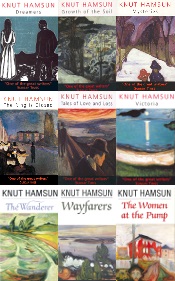Lorna Robinson is the author of Telling Tales in Latin, a new Latin course and storybook for children. With Ovid as the narrator, this book is an ideal first introduction to Latin, and features some of the most famous classical myths including stories from Ovid’s Metamorphoses. These stories are vital for capturing children’s imaginations, and colour illustrations throughout by Soham De help bring these magical stories to life. Telling Tales in Latin features all the grammar and vocabulary needed for the OCR entry level Latin qualification.
Lorna Robinson tells us how she discovered the magic of the myths of ancient Greece, stories that sparked her imagination and which she believes are the way to engage children with studying the classics. Here she shares some of her favourite classical myths.
Like many people, I learned about the myths of the Greeks and Romans as a young child, long before I learned any Latin. When I did first learn Latin, it was alongside descriptions of slaves and masters in country villas, remote and staid characters far removed from the weird, dark, colourful, alive stories that had long fascinated me.
My very first encounter was through the “Usbourne Book of Greek myths and Legends”, which had a picture of the Minotaur on the cover – I can still remember the huge curling horns and the terrible, but oddly human, face. Inside its pages, tales spilled out, precious and mysterious and frightening all at once, in a way my other childhood books were not. All these years later, I still carry those stories with me, and they’ve shaped my world and fuelled my imagination.
Here are two of my favourites!
Orpheus and Eurydice
This is my all-time favourite myth, and appears at the end of my book Telling Tales in Latin, a new Latin course and storybook for children, for that very reason.
The story of a man with the unearthly talent of moving all living things with his song. He lost his wife, and then dared to enter the underworld to ask for her back. Orpheus sings a song of grief so beautiful that even the ghosts weep and Hades is moved. Hades agrees to return Eurydice to life, but on one condition: Orpheus must not turn around before they reach the earth’s surface. They make the gloomy, eerie, lonely ascent, Orpheus first, Eurydice behind. Just as they are getting close, his fear overcomes him and he turns to see if she’s actually there. She instantly slips back into the underworld forever.
There are many things about this story which have haunted me. The fact that this man with his superhuman gift has such a human flaw, and lets his fears overwhelm him is very moving. There’s the image of this one man singing his heart out in that dark, foreboding land, and the ghosts being spellbound as his song enchants the underworld. And finally, there is the unanswerable question of why Hades set this rule at all – is it because he knew Orpheus would fail? Why did there have to be a condition? And why did Orpheus give in, so close to the end?
Persephone and Demeter
This is the story of how we came to have seasons. The tale goes that Persephone, daughter of Demeter, the goddess of fertility and plants, was picking flowers in a field, when Hades saw her and seized her away to the underworld to be his wife. Demeter searched high and low but couldn’t find her daughter. She grieved and mourned, and while she did this, the plants and crops all withered and died as she neglected to care for them. Eventually, she discovered that Hades had her daughter and she went to get her back. While Persephone had been in the underworld, she had eaten six pomegranate seeds and so she had to spend six months of every year with Hades, but for the remaining six months, she could return to earth to be with her mother. And so it was forever more, that for the six months that she is in the underworld each year, Demeter grieves and all the crops and plants and trees die – this is our autumn and winter. But when she returns, everything flourishes again and we have our spring and summer.
As with the Orpheus story, part of the fascination for me with this story is the strange and unwritten rule. Why does eating in the underworld invoke this rule – what does it represent about life and death and beliefs surrounding these things? Also, there is the human element within this goddess who is so powerful, that she grieves desperately for her daughter. And finally, for me there is something wonderful about explaining the seasons in such human, emotional terms.
So these are my favourites. What are yours?
 Telling Tales in Latin by Lorna Robinson, illustrated by Soham De, is published May 2013 by Souvenir Press.
Telling Tales in Latin by Lorna Robinson, illustrated by Soham De, is published May 2013 by Souvenir Press.













